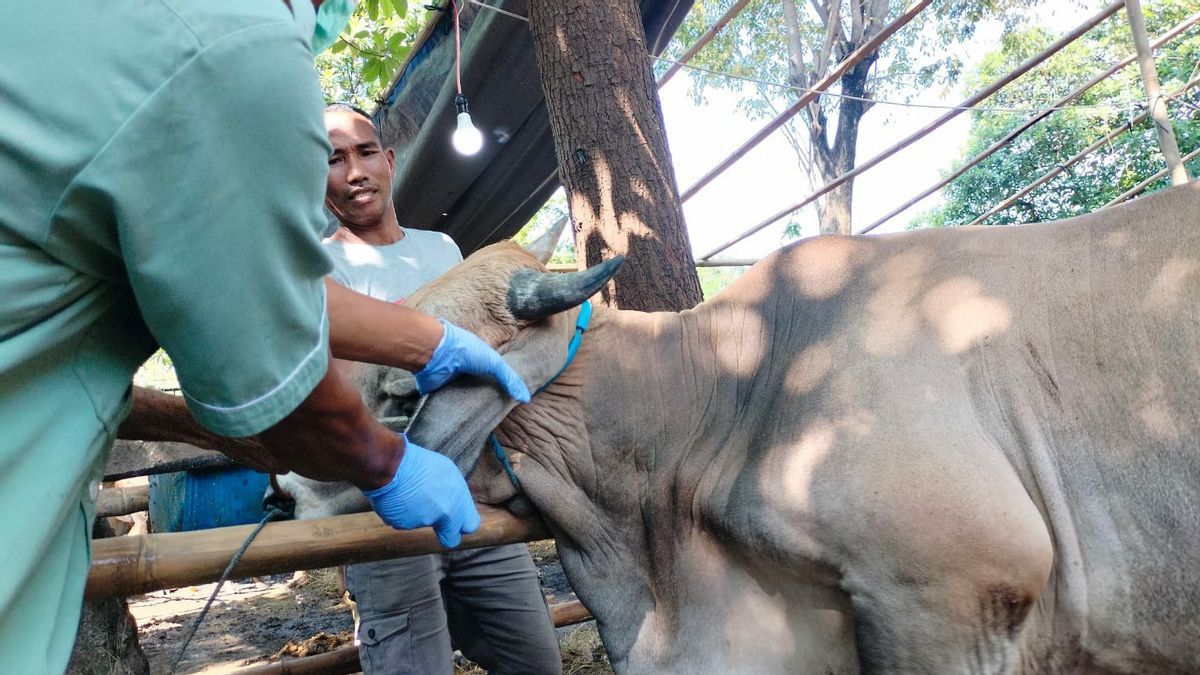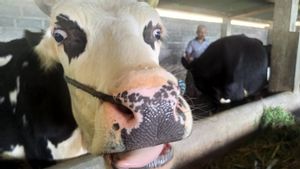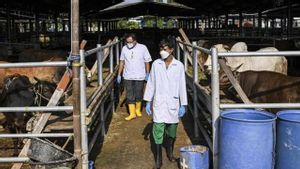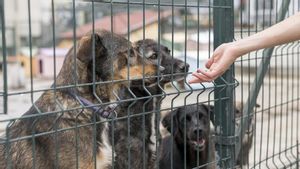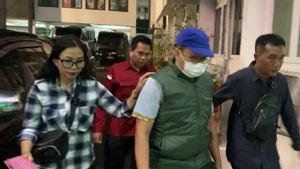JAKARTA - The Speaker of the House of Representatives, Puan Maharani, encouraged the government to take comprehensive action following the discovery of dozens of residents who were infected with the anti-exact virus after consuming beef. Handling this problem is not quite a side of handling and supervision, but there also needs to be efforts from the socio-economic side.
"The government must play an active role in monitoring the health of livestock. Regular livestock inspections and accurate laboratory testing can help quickly detect disease," said Puan, Wednesday, July 5.
As is known, the Antrax virus is currently endemic in Gunungkidul Regency, Yogyakarta Special Region (DIY), after the discovery of another case of anti-extortion that has attacked humans. So far, 93 residents of Gunungkidul have tested positive for anti-extraction.
The Ministry of Health (Kemenkes) reported that two cases of death in Gunungkidul were identified as attractor suspects. The two cases occurred within two months and were reported on June 23, 2023.
Allegations of the cause of anti-extraction transmission in Gunungkidul so far have led to cows belonging to local residents who died and were slaughtered and the meat distributed to residents for joint consumption. Puan also reminded the importance of the role of the Regional Government in supervising livestock for residents, especially for areas that are endemic anti-extraction.
"Regional governments should carry out periodic health checks on livestock. Socialization and education to the community, especially those who have livestock, also needs to be encouraged so that they can increase their awareness," said the former Coordinating Minister for Human Development and Culture.
Responding to the outbreak of antracks in Gunungkidul, Puan asked all local governments to check the condition of all cattle, cattle, goats, and sheep that are prone to being infected with anti-extraction. Especially for areas in DIY and its surroundings.
The transmission of the anti-ax virus in livestock has serious consequences for humans. This problem must be a serious concern of the Government. Don't let there be any more casualties from the disease," said Puan.
Puan also reminded cross-ministerial/institutional cooperation in overcoming the attack outbreak. This cooperation must go to the regional level between agencies such as the Agriculture and Food Service (DPP), the Health Service (Dinkes), and other relevant agencies.
"Because this virus not only threatens the health of the livestock itself, it also endangers humans who consume infected animal products. Moreover, there have been fatalities," he said.
اقرأ أيضا:
Antractic virus caused by a bacterial species called Bacillus Anthracis can attack a variety of livestock such as cows, goats, sheep, and buffalo. These bacteria infect animals through contaminated environmental exposures, such as soil or grass that has been contaminated with antractic spora.
When consuming animal meat exposed to the antirac virus, humans can become infected with serious diseases that affect the digestive tract, breathing, or human skin. Symptoms can vary from fever, shortness of breath, stomach pain, to severe open wounds.
"The local government and health authorities also play an important role in overcoming this danger. They must cooperate with breeders, livestock owners, and related communities to ensure effective preventive measures," explained Puan.
The English, Chinese, Japanese, Arabic, and French versions are automatically generated by the AI. So there may still be inaccuracies in translating, please always see Indonesian as our main language. (system supported by DigitalSiber.id)
